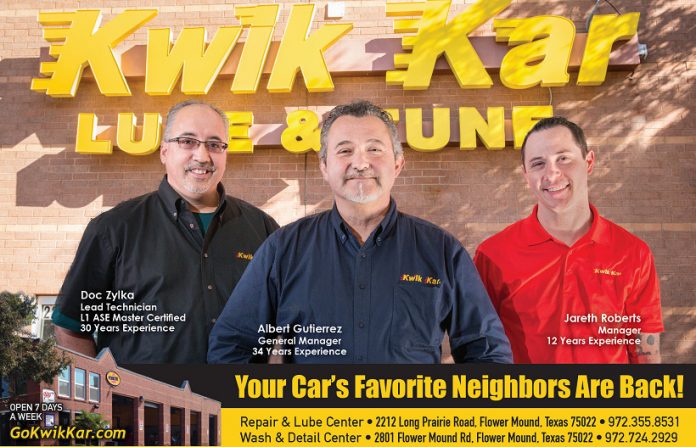 Wise advice passed down for generations says that the least costly car for you is the one you outright own. Sure there are some slick new models out there with a lot of bells and whistles, but there’s something to be said for loyalty, history and that familiar contentment you can only experience with a vehicle you know better than the back of your hand.
Wise advice passed down for generations says that the least costly car for you is the one you outright own. Sure there are some slick new models out there with a lot of bells and whistles, but there’s something to be said for loyalty, history and that familiar contentment you can only experience with a vehicle you know better than the back of your hand.
With that kind of relationship, it goes without saying that the better you take care of her, the less temperamental she’ll be as she ages. Whether your car is fresh off the lot or a seasoned traveler, here are a few steps you can take to help pave the way for years of driving pleasure:
- Find a trustworthy, long-term mechanic. Someone who keeps records of every update, oil change, and milestone your car has gone through is crucial when developing a tailored maintenance schedule to help prolong the life of your car.
- Reconsider aftermarket upgrades. No one likes to work harder than necessary. It wastes energy and diminishes long-term potential. This is also true with your car. Empty racks for luggage, bikes and skis, as well as cargo holders all weigh down a vehicle and reduce the aerodynamic design of the car. This causes unnecessary wear and tear on the vehicle and shortens its lifespan.
- Don’t overthink your fuel efficiency. Periodic ads hit late night TV for mileage enhancers, engine cleaners, and ionizers that promise results. Although they may produce a short-term difference, it is never wise to add a foreign substance to your car that it was never made to handle long-term. This also includes your fuel. If your car’s manual does not call for high-octane gas, it is better to save the dollar difference and instead, use the money to keep your car properly maintained.
- Regularly check and replace oil and all other fluids. Checking oil and fluid gauges is advisable, but fluids also need to be replaced at regular intervals. Be sure to use oil made for high-mileage cars. When you have oil changes, be sure to ask the mechanic to test the other fluids as well. For starters,the gauge won’t tell you when water has gotten into your brake fluid. Corrosion in your braking system is something you definitely want to head off at the pass before it’s too far gone.
- Limit your warm ups, idles, red-lines, and bumps. A widely believed myth is that the longer you allow an older car to warm up before hitting the road, the better. In reality, letting your car sit and idle for long periods – warm or cold – will most likely only result in lower fuel economy, and a worn-out engine. For best results, simply monitor your car’s temperature gage, avoid red-lining of any kind, and take it easy until the engine reaches normal operating temperature before hitting higher speeds. Also be sure to take your time over bumps and bad roads to avoid further stress on your car’s frame and suspension system.
- Be aware. You know your car inside and out. When you hear a new noise, see fluid in your parking space, or feel changes in way she behaves, take her in quick. Catching a problem at the beginning stages versus having a wheel fall off can make quite a difference in the size of the check you write to have it fixed.
Don’t let the “high-mileage” label given to cars with an odometer over 75,000 trigger concerns that she’ll need to soon be replaced. With proper care, including regular, thorough interior and exterior cleanings, a place like Kwik Kar can help you see that odometer double or even triple before she’s ready to retire.



















